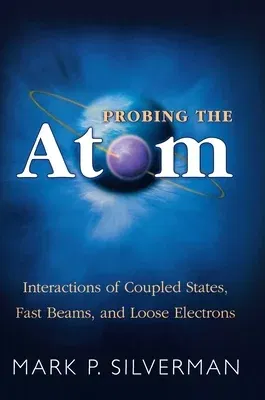The many-faceted efforts to understand the structure and interactions of
atoms over the past hundred years have contributed decisively and
dramatically to the explosive development of physics. There is hardly a
branch of modern physical science that does not in some seminal way rely
on the fundamental principles and mathematical and experimental insights
that derive from these studies. In particular, the drive to understand
the singular features of the hydrogen atom--simultaneously the archetype
of all atoms and the least typical atom--spurred many of the twentieth
century's advances in physics and chemistry. This book gives an in-depth
account of the author's own penetrating experimental and theoretical
investigations of the hydrogen atom, while simultaneously providing
broad lessons in the application of quantum mechanics to atomic
structure and interactions.
A pioneer in the combined use of atomic accelerators and radiofrequency
spectroscopy for probing the internal structure of the hydrogen atom,
Mark Silverman examines the general principles behind this far-reaching
experimental approach. Fast-moving protons are directed into gas or foil
targets from which they capture electrons to become hydrogen atoms
moving uniformly at very high speeds. During their rapid passage through
the spectroscopy chamber of the atomic accelerator, these atoms reveal
by the light they emit fascinating details of their internal
configuration and the interactions that created them. Silverman examines
the effects of radiofrequency fields on the hydrogen atom clearly and
systematically, explaining the details of these interactions at
different levels of complexity and refinement, each level illuminating
the physical processes involved from different and complementary
perspectives.
Readers interested in diverse areas of physics and physical chemistry
will appreciate both the theoretical and practical implications of
Silverman's studies and the personal style with which he relays them.
This is a work of not only an outstanding research physicist, but a fine
teacher who understands how curiosity underlies all science.

